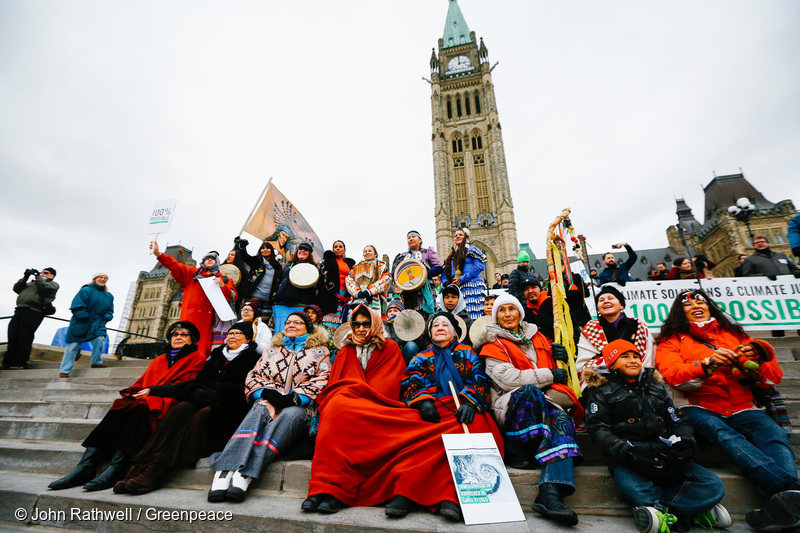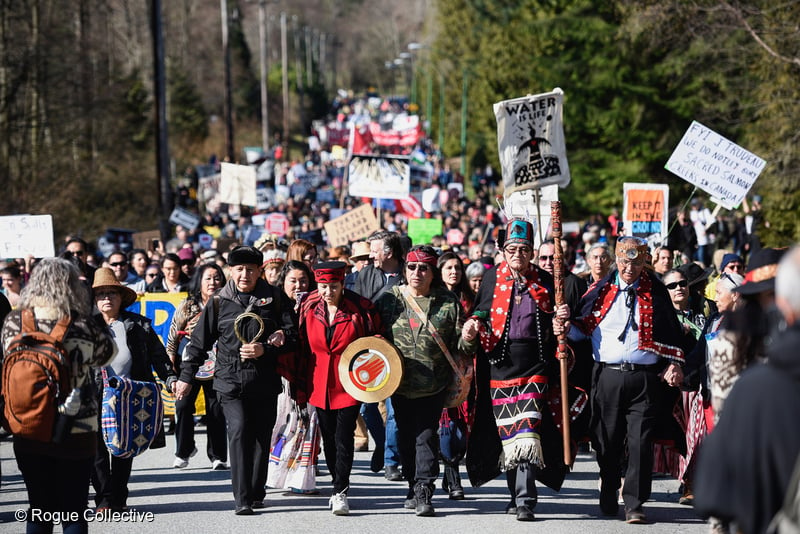With its new policy aimed at reducing greenhouse gas emissions from new buildings, Montreal joins a growing number of Canadian municipalities from Quebec to British Columbia (B.C). that have made strong commitments to zero-carbon construction policies
Montreal, QC and Nanaimo, BC – This week, Montreal became the biggest city in Québec and in Canada — and the country’s first cold-climate municipality — to prohibit gas in all new small buildings and limit it in large buildings [details here].
“We congratulate the city of Montreal on its leadership in decarbonizing buildings,” said Marie-Noëlle Foschini, coordinator of the Sortons le gaz! coalition. “It is imperative that Montreal continue on this path by taking additional steps to phase out gas from all its buildings by 2040, as it has committed to do.”
Montreal follows the Quebec community of Prévost, which voted in September to prohibit fossil gas in new buildings and prohibit the installation of new gas appliances in existing buildings.
“This draft by-law places Montreal at the forefront of North American cities committed to concrete climate action,” said Marie-Noëlle Foschini, the Sortons le gaz! Coalition coordinator. “The measures set out in this bylaw should inspire other Quebec and Canadian municipalities, and push provincial governments to take their responsibilities in decarbonizing buildings.”
These latest moves from Quebec communities are part of a growing wave of action across Canada to tackle a significant source of climate pollution. The building sector accounts for roughly 13% of Canada’s greenhouse gas emissions, and recent research has found that natural gas has emissions equivalent to coal when the total lifecycle of the fuel is taken into account. Additionally, gas appliances within the home contribute to a variety of respiratory issues and other health harms, and to outdoor air pollution.
Across B.C., municipalities are using new provincial powers to boost climate-friendly new construction — despite a coordinated opposition campaign from the oil and gas industry. Nanaimo City Council recently joined nearly two dozen communities across the province, including Vancouver and Victoria, in voting for zero-carbon new buildings. After passing this leading climate policy, Nanaimo councilors were immediately targeted with hundreds of emails from industry-led opposition from outside the province, with the most notable pushback coming from the Alberta government’s “war room.”
Despite the aggressive pushback, an increasing number of municipal leaders are stepping up to protect the health of their residents and the environment by pursuing zero carbon building policies in their communities.
“It’s inspiring to see municipal leaders pass strong policies to transition their communities off of fossil fuels, even in the face of high-pressure pushback from the oil and gas industry,” said Liz McDowell, Senior Campaigns Director with Vancouver-based international environmental nonprofit Stand.earth. “Numerous studies have found that phasing out gas appliances in favor of highly efficient heat pumps and electric boilers is one of the most effective climate actions we can take. By passing building electrification policies, local governments are doing their part to meaningfully reduce greenhouse gas emissions and create healthy, resilient homes.”
Stand.earth has been supporting municipal government leaders across Canada through its SAFE (Stand Against Fossil Fuel Expansion) Cities initiative. The campaign facilitates a network of North American local government leaders who share policies, experience, knowledge, and resources to accelerate municipal efforts toward phasing out fossil fuels and fast-tracking clean energy.
The Sortons le gaz! coalition brings together environmental, citizen and trade union organizations to promote sobriety and energy efficiency in the building sector, while accelerating the transition of the entire Quebec building stock to 100% renewable energy sources. It works to raise awareness of the true impact of natural gas on our health and our environment, promoting the advantages of replacing it, and informing ways of achieving this by informing the public and public decision-makers at all levels.
Quotes
“Last month, our community took action to reduce emissions in line with our climate goals by voting for zero carbon construction – honestly an easy action to take if we’re serious about taking responsibility for our fair share of the climate crisis. If the Alberta government thinks spamming councilors with blatantly climate-denying mail will make B.C. communities back down, they’re going to be very disappointed. This interference only strengthened our resolve.” Ben Geselbrecht, Nanaimo Councillor
“Every new building tied to fossil fuels now will need to be retrofitted in the future at a cost to residents. In Burnaby, we are accelerating the adoption of zero carbon construction because we know there’s no time to waste – local communities are already facing devastating climate impacts. Just this summer, we saw BC experience our most heartbreaking wildfire season by far, one that burned over 22,000 square km, destroyed hundreds of homes, and took the lives of two firefighters. We need to do everything we can to stop the climate crisis from getting worse.” Alison Gu, Burnaby Councillor
“The dominoes are beginning to fall, as more and more cities are taking action to reduce emissions. Montréal is showing how it can be done with its new gas prohibition. The provincial and federal governments need to wake up and follow its lead.” Patrick Bonin, Climate and Energy campaigner at Greenpeace Canada.
“More and more citizens are asking questions about the effects of gas on their health, and realizing that for too long, they have not been made aware of the risks and dangers of this fossil fuel, and have therefore been unable to make truly informed choices. We salute this courageous decision and the leadership shown by the City of Montreal, which demonstrates that cities increasingly understand their structuring role in the necessary decarbonization of Quebec society”. Patricia Clermont, Coordinator, Québec Association of Physicians for the Environment (AQME), part of the Canadian Association of Physicians for the Environment (CAPE)
– 30 –
Media contacts:
Patricia Clermont, Ph.D, Coordinator for the Quebec Association of Physicians for the Environment (AQME), [email protected], 438-356-2305
Patrick Bonin, Climate and Energy Campaigner at Greenpeace Canada, [email protected], 514-594-1221
Liz McDowell, Senior Campaigns Director at Stand.earth, [email protected], 604-219-6337
Cari Barcas, Communications Director at Stand.earth, [email protected], 312-720-7940



